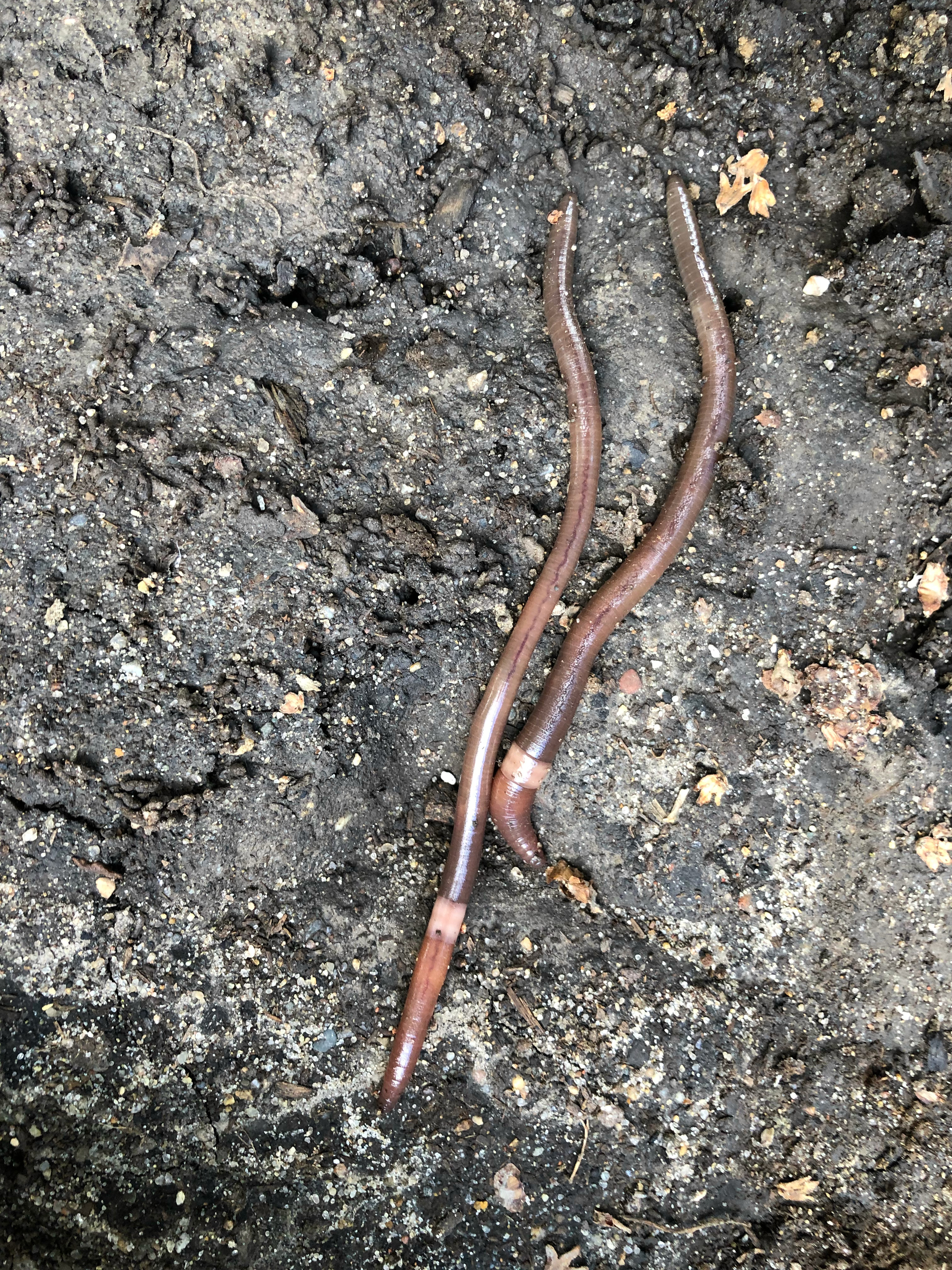Help prevent the spread of jumping worms

Worms play an important role in garden soil health, but the spread of a relatively new invasive worm species threatens our ecosystem. Jumping worms are a destructive type of earthworm that can harm plants by changing soil structure, damaging fine root hairs and stripping nutrients from topsoil. They are not native to Minnesota and are an emerging issue in our area.
Currently, the only known way to manage them is to prevent their spread.
Identify jumping worms
It can be hard to correctly identify jumping worms, as they look very similar to nightcrawlers and other earthworms. There are a few key characteristics that can help you tell adult jumping worms from other earthworms:
- Jumping worms thrash about wildly when disturbed, almost appearing to jump (hence, the name).
- They turn the soil into a consistency that resembles coffee grounds.
- See more characteristics.
Common sources
Jumping worms can spread to new environments in many ways. A few common examples include:
- Worms purchased as fishing bait.
- Worms purchased for composting.
- Soil, potted outdoor plants and sod.
- Wood mulch.
Ramsey County yard waste sites
Ramsey County is working with the Minnesota Department of Natural Resources (DNR) to develop the best precautions for our yard waste sites. Since jumping worms can be spread by moving dirt or sod, the county yard waste sites no longer accept these materials. Additionally, residents are not able to take home other plant materials from our yard waste sites. Compost available at our yard waste sites is at a low risk for jumping worms.
For dirt disposal options, refer to our A to Z Recycling & Disposal Guide or call 651-633-EASY (3279).
Prevent and dispose of jumping worms
Small actions can have a big impact on protecting our environment from jumping worms.
- Don’t buy jumping worms for any purpose.
- If you fish, throw unused bait in the trash.
- Inspect your mulch and soil for signs of jumping worms.
- If giving plants away, first wash off the soil and share them as bare root plants.
- If you find jumping worms, put them in a sealed container and dispose of them in the trash.
Jumping worms should be reported to the DNR.
This article is featured in Green Ramsey, an environmental health newsletter from Ramsey County.
Learn more about and subscribe to Green Ramsey.